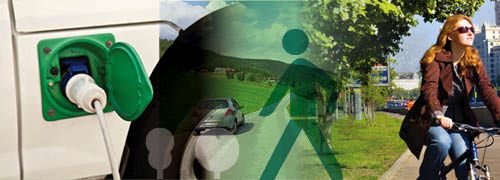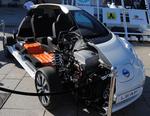Transporting people and freight generate a considerable amount of local exposures, and about one third of Norwegian emissions of greenhouse gases.
Real emissions from diesel cars exceed substantially the type approval values – see “Dieselgate”. Norway needs to continue measuring vehicle emissions under Nordic colder climate conditions and realistic urban driving cycles. Norway is the world leading pilot area for electro-mobility and our research of international interest.
Are the billions spent on noise insulation and prevention by road, railway, and air-port authorities to satisfy Norwegian zoning limits effective use of public funding? The consequences of restrictive regulations should be assessed to see which type of efforts are effective, and socio-economically advantageous.
Cars sharing, and urban bicycle solutions stimulate to more environmental friendly, flexible and integrated mobility solutions. A micro-city approach can contribute to the transformation of today’s car-dependent suburbs.
Climate change alters the probabilities natural hazards. It is the secondary natural hazard impacts that have the gravest consequences, and resilience building efforts should target second and third affected tiers, and their stakeholders.
The group also applies life cycle assessment (LCA) for systematic and holistic analyses of environmental and climate footprint of products and services.













